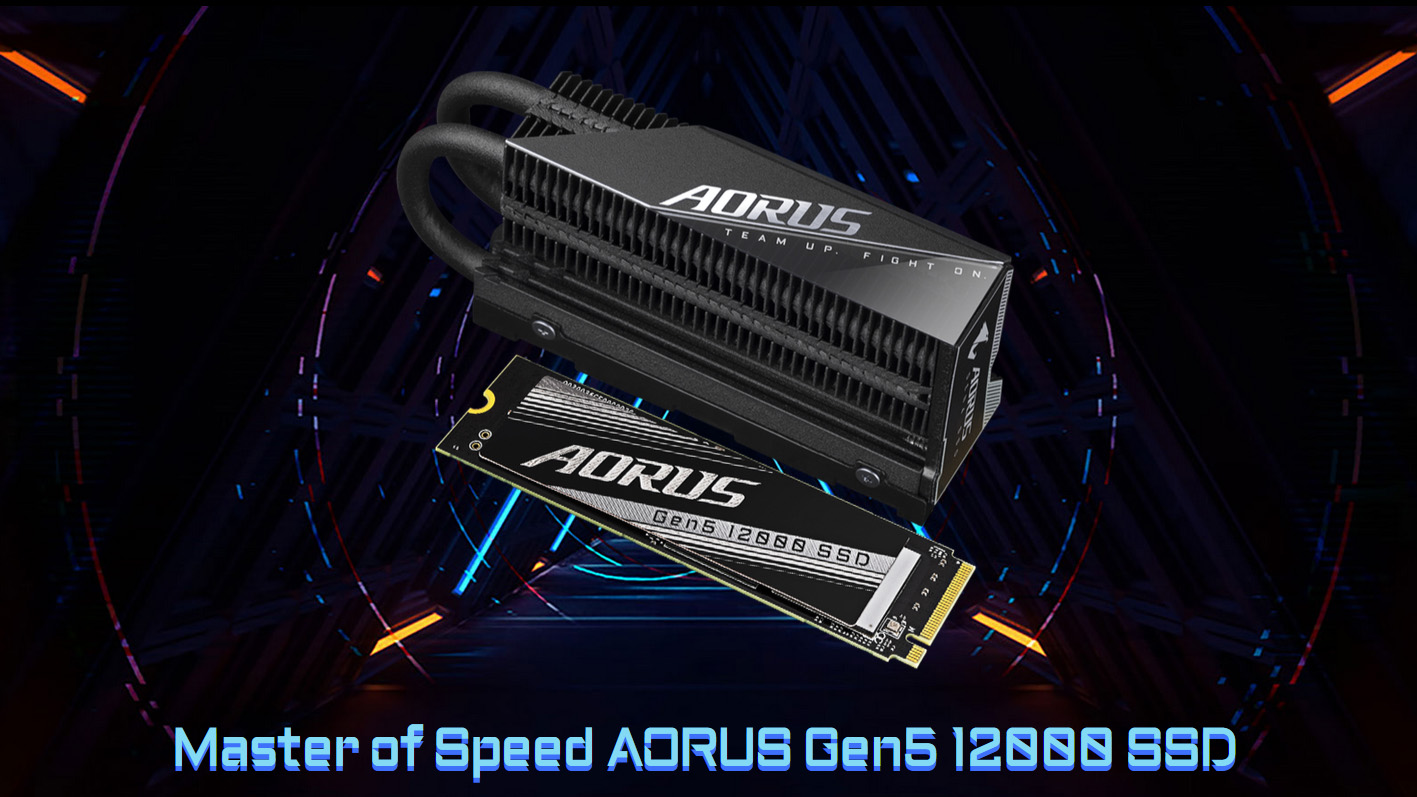Gigabyte Unveils 12 GB/s Aorus Gen5 12000 SSD
Gigabyte's new drive almost maxes out the Phison E26 controller

Gigabyte has unveiled a new PCIe Gen 5 SSD capable of achieving over 12 GB/s in sequential read speeds and nearly 12 GB/s in sequential write speeds. Likely take a spot on our list of best SSDs soon, the new drive is called the Aorus Gen5 12000 SSD, and is the successor to the Aorus Gen5 10000 SSD — which was one of the very first PCIe Gen 5 SSDs to hit the market. Pricing and availability have not been disclosed at this time.
The only difference between the new drive and the older drive is the boosted read and write speed performance. The Aorus Gen5 12000 achieves speeds of up to 12.4GB/s (12,400 MB/s) in sequential reads and up to 11.8 GB/s (11,800 MB/s) in sequential writes. Gigabyte's original Aorus Gen5 10000 SSD wasn't that fast for a Gen 5 drive, with sequential read speeds just shy of 10 GB/s and sequential write speeds of 8.5 GB/s — so the new Aorus Gen5 12000 is 23% faster in sequential read speeds and 42% faster in sequential write speeds.
With the improved read/write speeds, the Aorus Gen5 12000 almost takes full advantage of the capabilities of Phison's E26 controller, which is rated for speeds of up to 14 GB/s in sequential reads and 11.8 GB/s in sequential writes. If Gigabyte wants to make an even faster drive in the future, it still has some headroom with the E26 controller for read speeds, but it will need to find a new SSD controller to break the 11.8 GB/s write speed barrier.

Additional specs for the Aorus Gen5 12000 include: a mean time between failure rating of 1,600,000 hours (MTBF), 232-layer 3D TLC NAND Flash, 4GB of LPDDR4 cache, 11.5W max operating power, 0 - 70 degrees Celsius operating temperature, PCIe Gen 5 x4 interface, NVMe 2.0 standard, and a 5-year warranty.
The drive comes in the standard M.2 2280 size, in both 1TB and 2TB models, which have different speed. The 2TB model is the fastest model with 12.4 GB/s sequential reads and 11.8 GB/s sequential writes, while the 1TB model is slower with 11.7 GB/s sequential reads and 9.5 GB/s sequential writes. Endurance ratings are also different between the two models: the 2TB model is rated for 1,400TB total bytes written (TBW), while the 1TB model is rated for half that (700TB TBW).
Like its predecessor, the new drive also comes with an "optional" M.2 Thermal Guard Xtreme SSD cooler to maintain performance and drive integrity. The cooler is massive, sporting a dual-heat pipe design and a blacked-out heatsink featuring a Nanocarbon coating, which is advertised to boost thermal efficiency.
Gigabyte says the cooler is big enough to work in passive airflow conditions where the system is cooled with a CPU AIO liquid cooler. While the cooler is technically optional, the drive cannot be utilized without an SSD cooler — meaning you'll need to use an SSD heatsink built into your motherboard or a third-party cooling solution if you opt not to use the Thermal Guard Xtreme.
Stay On the Cutting Edge: Get the Tom's Hardware Newsletter
Get Tom's Hardware's best news and in-depth reviews, straight to your inbox.

Aaron Klotz is a contributing writer for Tom’s Hardware, covering news related to computer hardware such as CPUs, and graphics cards.
-
Frozoken Yet another gen 5 drives that's gonna end up a full 10% behind the 990 pro in qd1 random reads or have we stopped regressing? Genuinely though, do you guys know what samsung did to continue to maintain a relatively signicant lead there while every other flagship drive is within 1% of each other?Reply -
Vixzer I would prefer that they increase the size to more than 8tb instead of increasing the velocity to be honest....Reply